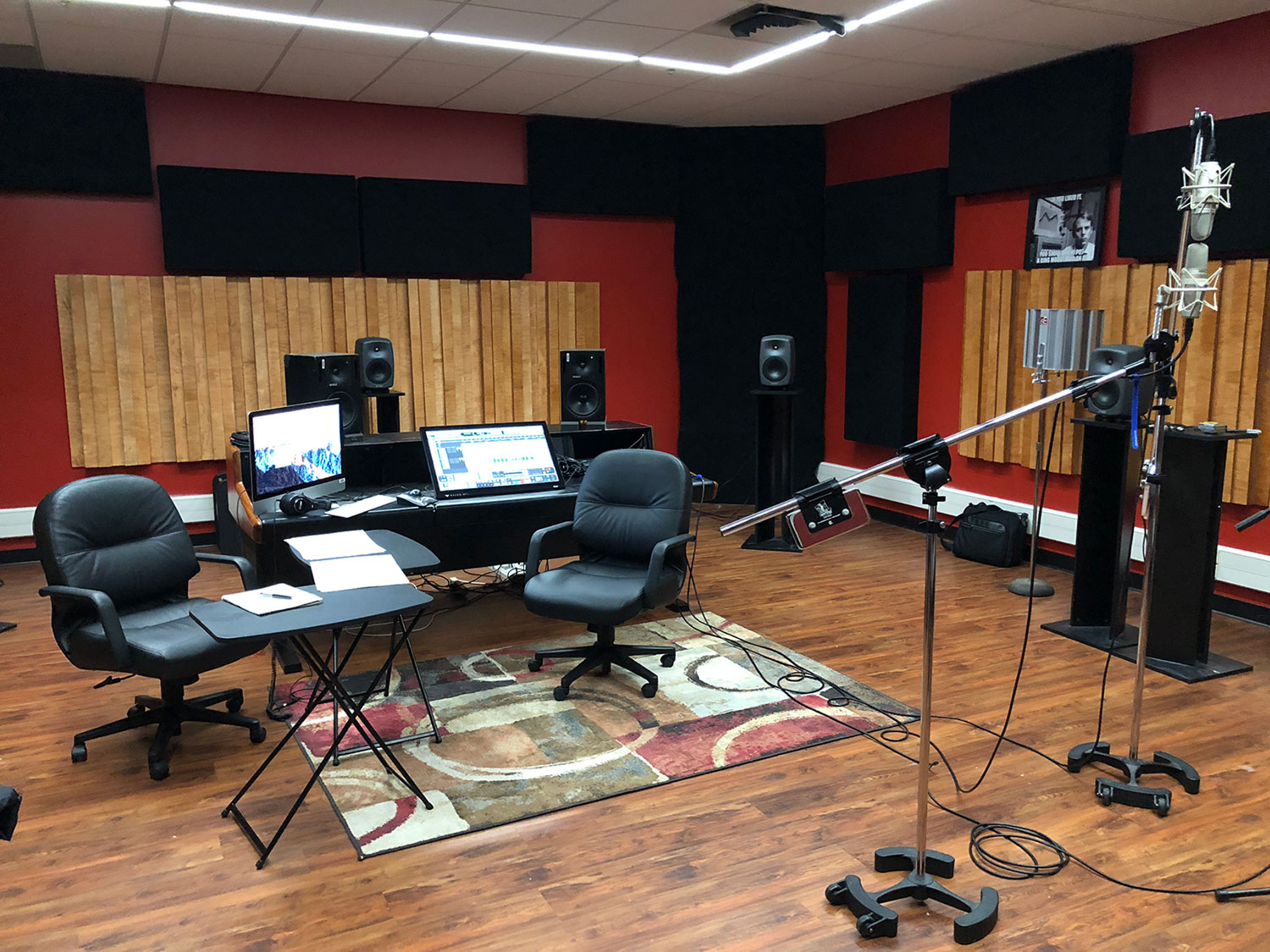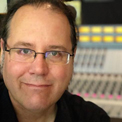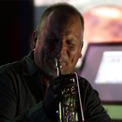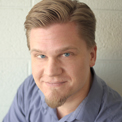
Breadcrumb

Music Technology
Practical knowledge/creative engagement
The UCM Music Technology program stands at the intersection of audio engineering, music production, computer science, and sonic creativity. At UCM Music Tech we embrace diverse ideas and multiple ways of creating and working with music technology. You are encouraged to explore, experiment, and push the limitations and perceptions within the music technology industry, while working from a solid foundation of practical knowledge coupled with creative engagement.
Career Opportunities
Graduates of UCM's music technology program are working around the world. Alumni can be found in recording and mastering studios in Los Angeles, Nashville, Denver, Chicago, and elsewhere. They are working on major international tours and on the audio teams of large corporations, concert venues, theatres, and churches. Alumni have started their own successful businesses as composers, audio engineers, sound designers, and private teachers. Many career paths exist for our graduates, and the broad set of opportunities for music technology study at UCM, along with a focus on developing entrepreneurial thinking, help to prepare our students for a wide variety of possibilities.
Interested in music, audio, and cutting-edge technology?
This is the degree for you. Music Technology Majors Study:
Audio Engineering and Production
Live Sound Reinforcement
Technology-Based Performance
Audio for Film/Video/Game
Sound Design
Interactive Computer Music
Composition
Acoustics
For information regarding our Bachelor of Music, Music Technology Degree, click here
For information regarding our Masters of Arts in Music Degree with a Music Technology focus, click here
Click here to connect with the UCM Center For Music Technology on Facebook
Courses Offered
Undergraduate Courses:
- Mus 1400 Computer Music Notation: Introduction to notating music with computer software.
- Mus 1410 Fundamentals of Music Technology I: Hardware: Overview of music technology and audio hardware, including basic operating principles, terminology, and real-world applications.
- Mus 1420 Fundamentals of Music Technology I: Software: Overview of music technology and audio software, including basic operating principles, terminology, and real-world applications.
- Mus 1450 Audio and Acoustics: Physical properties of sound and an introduction to techniques for controlling and manipulating sound in structures. Operating principles of digital and analog audio, including transduction, time- and frequency-domain analysis, and sampling theory.
- Mus 1460 Music Technology Performance I: Class study of performing live music with technology. Performance skills; basic instrument customization and optimization; improvisation; songwriting/composition; basic interpretation and aesthetics of performance.
- Mus 1470 Fundamentals of Music Technology II: Fundamentals of Music Technology and Audio Production. Signal Processing, system operation, and other core topics. Prerequisite(s): MUS 1410 and MUS 1420.
- Mus 2141 Composition I: Techniques of twentieth- and twenty-first century composition through projects in smaller forms. Electronic music studio techniques. Aural and visual analysis of contemporary music.
- Mus 2400 Sound Reinforcement and Music Production: Theory and usage of audio equipment to produce recordings and provide sound reinforcement for live events.
- Mus 2410 Digital Audio Production: Theory and usage of Pro Tools and other digital audio hardware and software to produce music and other audio.
- Mus 2420 Music Technology Practicum: Practical experience in audio recording and live sound reinforcement.
- Mus 3141 Composition II: Continuation of Composition I through projects of small and medium dimensions adapted to needs and interests of the student.
- Mus 3400 New Technologies Ensemble: Study and performance of chamber and large ensemble music incorporating technology.Membership selected by audition.
- Mus 3460 Music Technology Performance II: Advanced class study of performing live music with technology. Advanced performance skills; instrument design, realization, customization, and optimization; improvisation; songwriting/composition; advanced interpretation and aesthetics of performance.
- Mus 4040 Music Business Practices: Copyright, entrepreneurial skills, and business principles relevant to the music industry.
- Mus 4115 Instrumentation: Characteristics of instruments normally found in band and orchestra. Short writing projects for instrumental choirs, full band, and orchestra. Score study.
- Mus 4130 Choral Arranging: Practical arrangements for various choral ensembles for school organizations and church choirs.
- Mus 4190 Electronic Music Composition: Composition of electronic music in popular and artistic styles. Technical principles, history of the genre, and aesthetic considerations of electronic music.
- Mus 4195 Max and MSP: MIDI/Audio programming, application development, and music composition in the Max/MSP environment.
- Mus 4400 Audio for X: Tools, techniques, and creative approaches to creating audio and designing sound for various environments, including films, games, interactive media, and others.
- Mus 4410 Electronic Music Production Techniques: Tools and techniques used in electronic music production, including MIDI, OpenSoundControl, synthesis, sampling, sequencing, loops, and others.
- Mus 4420 Advanced Music Technology Practicum: Practical experience in audio facility management and maintenance.
- Mus 4430 Seminar in Music Technology: Advanced individual and/or group work in music technology and audio production.
- Mus 4470 Advanced Audio Production: Advanced concepts and techniques in audio production and music technology. Stereo ad surround recording techniques, signal processing chains, mixing techniques, mastering, and other advanced topics.
- Mus 4450 Internship in Music Technology: Field application of theories and practices in professional music production, recording arts, or music technology industries
Graduate Courses:
- Mus 5020 Advanced Music Technology Performance III: This course introduces the student to advanced concepts and practices of modern technological performances culminating in a final performance using the new techniques and methods acquired.
- Mus 5040 Music Business Practices: Copyright, entrepreneurial skills, and business principles relevant to the music industry.
- Mus 5190 Electronic Music Composition: Composition of electronic music in popular and artistic styles. Technical principles, history of the genre, and aesthetic considerations of electronic music.
- Mus 5195 Max and MSP: MIDI/Audio programming, application development, and music composition in the Max/MSP environment.
- Mus 5410 Electronic Music Production Techniques: Tools and techniques used in electronic music production, including MIDI, OpenSoundControl, synthesis, sampling, sequencing, loops, and others.
- Mus 5430 Seminar in Music Technology: Advanced individual and/or group work in music technology and audio production.
- Mus 5440 Music Technology and Culture: A critical exploration of the constantly changing relationships between society, artists, engineers and the technologies they use.
- Mus 5445 Contemporary Electronic Music Analysis: Students will explore the combination of close listening, software-based musical analysis, research, and descriptive writing to create multi-faceted analyses of experimental and popular contemporary electronic music.
- Mus 5500 Audio for X: Tools, techniques, and creative approaches to creating audio and designing sound for various environments, including films, games, interactive media, and others.
Internships
As a music technology major, you will be required to complete an internship in the field. Preparing you for entry to the industry post-graduation, the internship provides real world experience and an opportunity for you to begin building your professional networks. Internships must be connected to music or audio, but you are encouraged to explore a variety of opportunities. Many intern at recording studios or with live sound reinforcement companies, but others have interned at theatres, videogame companies, television production companies, churches, music publishers, and other industry players. You receive guidance on internships from the program director as well as UCM's Career and Life Design Center, which provides assistance with résumés, cover letters, and interviewing skills. Music technology majors have interned with companies across the United States and in Europe, including the following, among others:
Paris: IRCAM
London: Blow Up Records, Kingston Green Radio
Los Angeles: Bell Sound, Emoto Studios, EMI Music Publishing, TrueTalent, Skip Saylor, Smart Post, 4th Street Recording
New York: Dubway Studios
Nashville: Emerald Recording, Castle Recording, Gotee Records, Dark Horse Studios, Omni Sound
Chicago: Engine Studios, Bosco Productions
Portland: Rex Post Production
Branson: Voices Recording
St. Louis: Technisonic, Phat Buddha, AmpSTL, Clayton Recording, 105.7 The Point
Kansas City: Chapman Recording, Kauffman Center, DSS Productions, BRC Audio Productions, Verizon Wireless Amphitheatre, Black Lodge Studios, Awestruck Productions, MIX93.3FM, 98.9 The Rock
Atlanta: Reach Records
Technology Performance
Music Technology majors, like all other music majors, must pass an audition on their primary instrument/voice to be admitted to the degree. As part of the degree program, you will take lessons on your primary instrument/voice. Many music technology majors declare a traditional instrument or voice, but you may choose to declare laptop, turntables, or other technology-based instruments and audition on those as well. For more information on audition requirements for any instrument/voice, including applied technology, please see: Applications, Scholarships, and Auditions.
As a Music Technology major, you can perform in a variety of UCM Department of Music ensembles, appropriate to your primary instruments. For specific ensemble information please visit the Ensembles Page. Those students whose primary instruments are technology-based will perform in UCM's New Technologies Ensemble.
New Technologies Ensemble
Studio A
Studio A
At 1600 square feet, Studio A is at the heart of the UCM Center for Music Technology. Large enough for our student audio engineers to record UCM’s Jazz Ensemble (which we do twice a year), Studio A is one of the top recording facilities for miles in any direction.
Featuring a Rupert Neve 5088 mixing console and a wide variety of digital and analog equipment, this studio is equipped to handle anything from voiceover work and solo instrument recording to very large rock band sessions. In addition, as an All-Steinway School, we have a Steinway D grand piano in the studio.
In this studio, you develop and refine your skills as recording engineers.
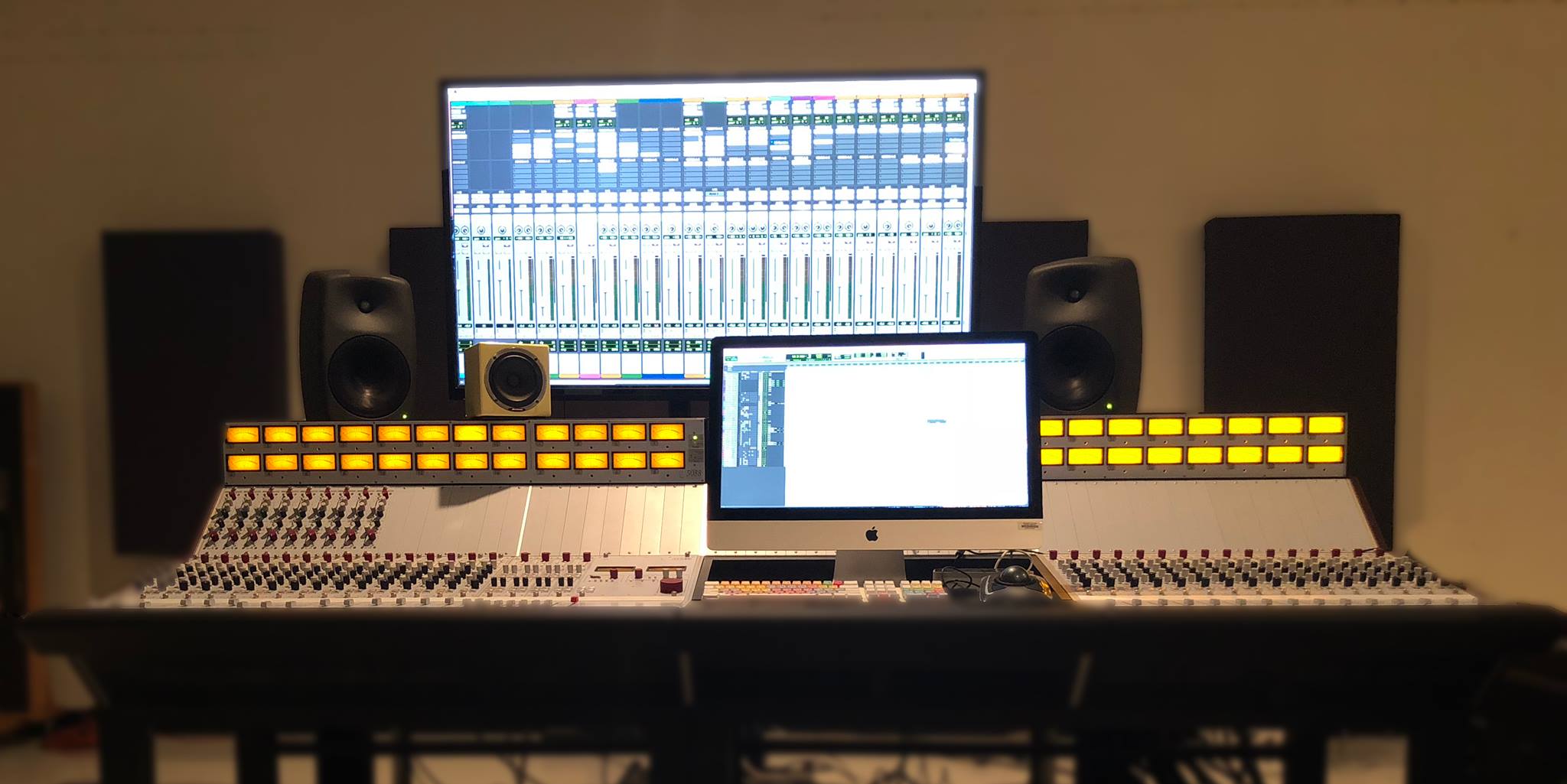
Mixing Console
Rupert Neve Designs 5088 large-format analog mixing console (32 channels)
Software
Avid Pro Tools 2020 Ultimate
Access Indigo
Antares Auto-Tune
Apple Logic Studio X
Compressor
Cycling ’74 Max
D-Fi
D-Verb
Digidesign Revibe
DINR
Drawmer Dynamics
Eventide Factory and Quadravox
Final Cut Studio
Line6 AmpFarm and EchoFarm
Metric Halo Channel Strip
MOTU MachFive III sampler
Plug-ins: McDSP Channel G
ReverbOne
SMACK!
Sony Oxford
Soundtrack Pro
Wave Mechanics PitchDoctor
Waveburner
Waves Diamond Bundle TDM
Mic Preamps and Hardware
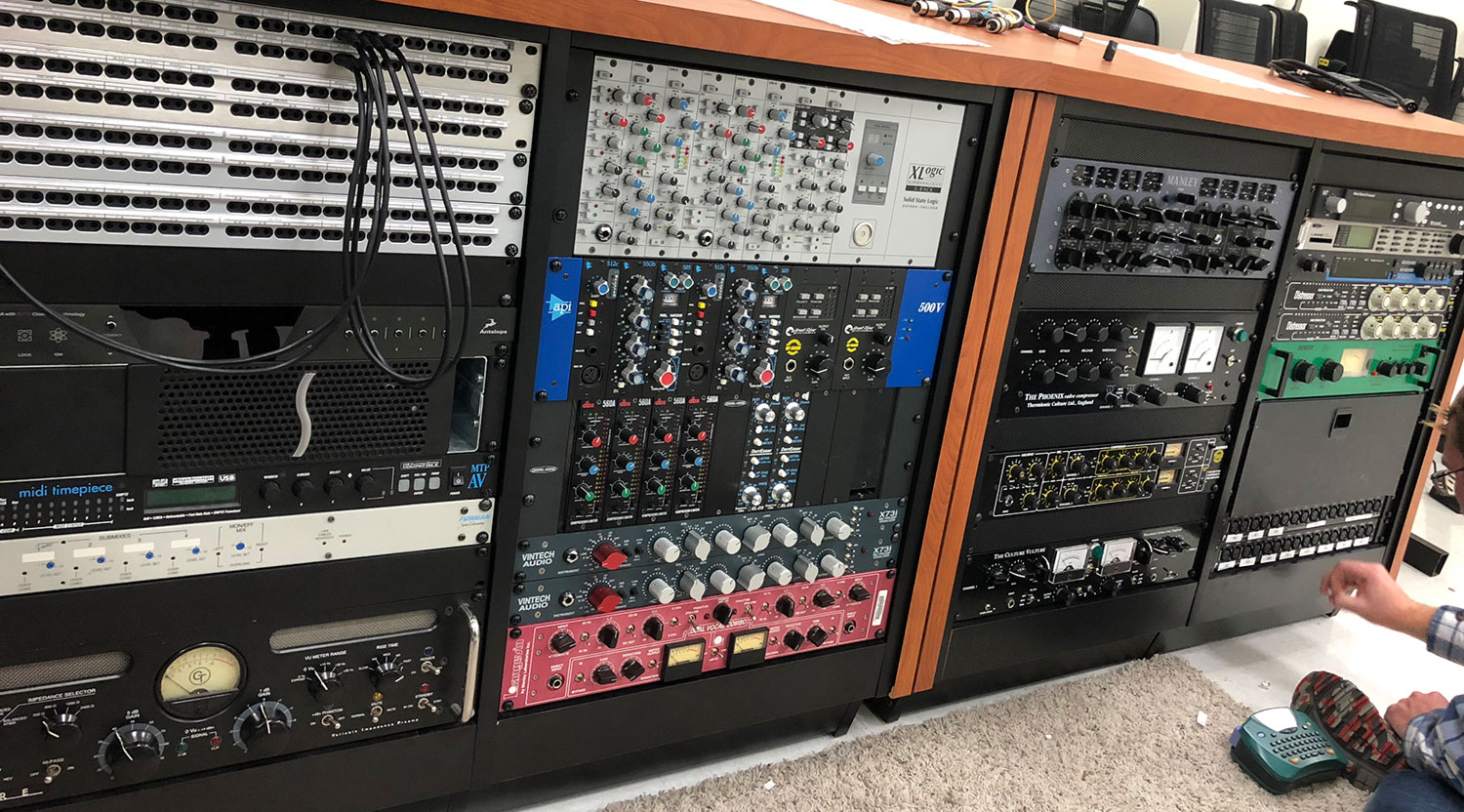
Orion 32 HD 64 (HDX, MADI, and USB 3.0 Audio Interface)
API 512c (x 2)
API 525 (x 2)
API 550b (x 2)
Bricasti Design M7 reverb
dbx 386
Drawmer 1969 Mercenary Edition (x 2)
Empirical Labs DerrEsser (x 2)
Empirical Labs EL8-SX stereo Distressor w/ British Mode
Furman HDS6 headphone distribution system
Furman IT-1220 balanced power distributor
Great River MP-500NV
Groove Tubes ViPre
Langevin Dual Vocal Combo (x 2)
Lexicon MPX1 multi-effects unit
Manley Massive Passive
MOTU MIDI Timepiece AV-USB
SSL VHD Preamp (x 2)
SSL XLogic channel (x 2)
SSL XLogic G Buss Compressor
SSL XLogic Preamp (x 2)
TC Electronic M3000 studio reverb
Thermionic Culture Phoenix SB
Thermionic Culture Vulture
Vintech X73i (x 2)
Monitors
2 x Genelec 8250A
Genelec 7260A subwoofer
Genelec AD9200a converter
2 x Avantone MixCubes alternate monitors
Keyboards/Synthesizer
Kurzweil K2600XS 88-key w/sampling, studio/orchestra expansions
Moog Sonic Six and other vintage synthesizers available
Hardware Recorders
Alesis ADAT HD24XR digital recorder (24 tracks)
Alesis Masterlink 9600 CD recording/mastering deck
Ampex ATR200 2-track tape deck
Teac 80-8 8-track tape deck
Studio B
Studio B
In Recording Studio B, you develop your audio engineering skills in mixing, editing, and mastering. It is also an excellent studio for tracking individuals or small ensembles.
Mixing Console and Control Surface
Solid State Logic Matrix2
Software
Avid Pro Tools 2020 Ultimate
Access Indigo
Antares Auto-Tune 4
Apple Logic Studio X
Cycling ’74 Max
D-Fi
D-Verb
Digidesign Revibe
DINR
Drawmer Dynamics
DUY DSPider
Eventide Factory and Quadravox
Final Cut Pro X
Line6 AmpFarm and EchoFarm
Metric Halo Channel Strip
MOTU Digital Performer 4
MOTU MachFive III sampler
Plug-ins: McDSP Channel G
ReverbOne
SMACK!
Sony Oxford
Wave Mechanics PitchDoctor
Waves Diamond Bundle TDM
Mic Preamps and Hardware
Grace Design m802 8-channel remote controlled microphone preamplifier
2 x Avid HD preamps (in HD Omni audio interface)
Avid HD I/O audio interface
Avid HD Omni audio interface
MOTU MIDI Timepiece AV-USB
Furman IT-1220 balanced power distributor
SSL X-Rack 24-input summing buss with Total Recall automation, stereo EQ, and G Buss Compressor
JoeMeek SC2.2 stereo compressor
Monitors
5 x Genelec 8240A
Genelec 7260A subwoofer
Genelec AD9200a converter
2 x Avantone MixCubes alternate monitors
Keyboard
Kurzweil K2600RS rack w/sampling
studio/orchestra expansions
Electronic Music Composition Studio
Electronic Music Composition Studio
The UCM Electronic Music Composition studio is a great location for experimental and creative practices! Whether you are working on sound design for video and games, synthesis, audio software design, or experimental works, the sonically isolated studio featuring an 8.1 Genelec ring of monitors is the perfect facility.
Mixing Control Surface
Slate Raven MTi2
Software
Avid Pro Tools 2020
Apple Logic Studio X
Ableton Live Suite
Final Cut Pro X
Cycling ’74 Max
Finale notation software
Mic Preamps and Hardware
Metric Halo ULN-8 interface
Vintage (1973) Moog System 55 modular analog synthesizer (8 VCO modules, VCFs, VCAs, ring modulator, envelope follower, step sequencer, reverb, noise generators, etc.)
Vintage Moog Sonic Six
Monitors
8.1 Genelec Ring
Other Studios and Facilities
Project Studios and other facilities
Recording Studios C and D
Intended primarily for students working on editing, mixing, composing, sound design, and other projects that do not need the extensive capabilities of the larger studios, Studio C offers a 5.1 monitoring system and iMac loaded with the primary software titles used in the music tech program.
Software
Avid Pro Tools 2020
Apple Logic Studio X
Ableton Live Suite with Push 2 controller
Cycling ’74 Max
MOTU MachFive III sampler
Unity 3D Game Engine
Monitors
5 x Genelec 8030A and Genelec 7250A subwoofer (Studio C)
Monoprice 8-inch Powered Studio Multimedia Monitor Speakers (Studio D)
Mic Preamps and Hardware
Apogee Symphony I/O (Studio C)
Focusrite Scarlett 18i20 (Studio D)
New Technologies Ensemble Rehearsal Studio
Dedicated space for the New Technologies Ensemble and Applied Technology lessons.
Music Technology Computer Lab
Housed in the music technology facilities in Wood Hall, this lab is dedicated for your use as a music technology student. It features five 27” iMac computers loaded with all the software titles we teach in the program. Students in studio courses have 24/7 access to this lab, as well as the other music technology facilities.
Keyboard and Computer Labs
UCM Keyboard Lab (Utt 009)
The music department keyboard lab provides space for students to learn and practice their piano skills. It houses 13 high-quality digital pianos, in an arrangement that allows piano teachers to easily help each student achieve his or her finest.
UCM Music Computer Lab (Utt 011)
The UCM music computer lab is home to 20 current-model iMac computers with a variety of MIDI and audio software installed, including Finale and Logic. Each computer also has an Akai MPK25 keyboard attached. Four of the computers are top-of-the-line 27" iMacs, and serve as music technology priority machines. These computers have additional software installed, including Pro Tools and other software used in courses for music technology majors. The lab also features a SmartBoard, allowing music education majors to gain experience with this important pedagogical technology. The lab is open for regular hours, posted on the door.
Hart Recital Hall Diffusion System
Hart Recital Hall is the primary music performance space at UCM. Featuring an outstanding 15-channel diffusion system by Meyer Sound Laboratories (eight Meyer UPJ-1P speakers, three MMXP4 speakers, and four UMS-SM subwoofers mounted in surround) Hart is one of the best performance spaces for electroacoustic music and video in the Midwest.
Microphones and other Hardware
Microphones and other Hardware
The selection of microphones available to you at the UCM Center for Music Technology is quite extensive, featuring a wide variety of options, including many high-end models. This mic collection is shared by all of the studio facilities in the Music Technology program, ensuring you access to the perfect microphone for any job.
Our philosophy is to train you on equipment used every day by professionals around the world. The microphones below have been chosen time and time again by engineers, critics, musicians, and educators as “the right mic for the job.” In the UCM Music Technology program, you have access to many of the same microphones you will be using throughout your careers as audio engineers, enabling you to start learning the idiosyncrasies of each mic now.
In addition to microphones, other hardware is available for checkout, including: Roli Seaboard, Livid OhmRGB, QuNeo, Ableton Push 2 (x 6), audio/MIDI interfaces, and various other surfaces and vintage tone modules.
Microphone Cabinet
AKG C3000B (x 3)
AKG C414B/ULS (x 2)
AKG D112 (x 2)
Antares AMM-1 microphone modeler
Audio-Technica 4033 (x 2)
Audio-Technica 4047
Audio-Technica 4050CM5
Audix D-2 (x 2)
Audix D-4
Audix D-6
Audix i-5 (x 6)
Audix SCX-1c (x 2)
Audix SCX-1hc
Crown PCC-160 (x 2)
Crown PZM 30D
DPA 3511 stereo mic kit w/4011 pair
Earthworks QTC-1 (x 2)
Earthworks SR69
Earthworks Z30X (x 2)
ElectroVoice Cardiline 642
ElectroVoice RE20
Lawson L47MP
Microtech-Gefell UMT70s (x 2)
Mojave Audio MA300 (x 3)
Neumann KM184 (x 2)
Neumann KMS104
Neumann TLM193
Neumann U87ai (x 2)
Oktava MC012 (x 3)
Royer Labs R-121 (x 2)
Royer Labs SF-24 stereo ribbon mic
Røde NT1 (x 2)
Sennheiser MD421-II (x 5)
Shure Beta 181
Shure Beta 52a
Shure Beta57a (x 2)
Shure KSM44 (x 3)
Shure SM27-c (x 2)
Shure SM57 (x 15)
Shure SM58 (x 2)
Shure SM7b
Shure SM81 (x 2)
Sound Reinforcement Equipment
Mixing Consoles
Yamaha DM2000v2 96-channel digital mixer (in Hendricks Hall)
PreSonus RM32ai iPad-controlled 32-channel, 18-bus digital mixer (in Hart Recital Hall)
Yamaha DM1000v2 (portable)
Mackie SR32•4-Bus VLZ-Pro (portable)
Main monitors
8 x Meyer UPJ-1P loudspeakers
3 x Meyer MMXP4
4 x Meyer UMS-1P Subs (in Hart Recital Hall)
6 x Mackie/EAW SA1530z
2 x Mackie SR1530 triamped 3-way PA speakers
Stage monitors/fills/amplifiers
4 x Yamaha S115IV 2-way PA speakers
4 x Yamaha BR15M stage monitors
7 x JBL EON G2 powered 2-way PA speakers
Effects/Dynamics Processors/EQ
dbx DriveRack 260
Lexicon MPX110 multi-effects unit
PreSonus ACP-88
PreSonus DEQ624 digital 2-channel 31-band graphic equalizer
Onboard dynamics, effects, and EQ on the DM1000v2
Other
13 x Shure Beta58a ULX-P wireless microphone systems
1 SM98 wireless instrument mic system
2 x WL184 wireless lavalier mic systems
2 x PreSonus Digimax
2 x PreSonus D8B 8-channel mic preamps
2 x Radial D8 8-channel DI
Furman PL-8 power distributor
Faculty
Upcoming Events
Contact
Dr. Eric Honour
Professor of Music Technology and Composition
Utt 111
Tel: (660) 543-4530




